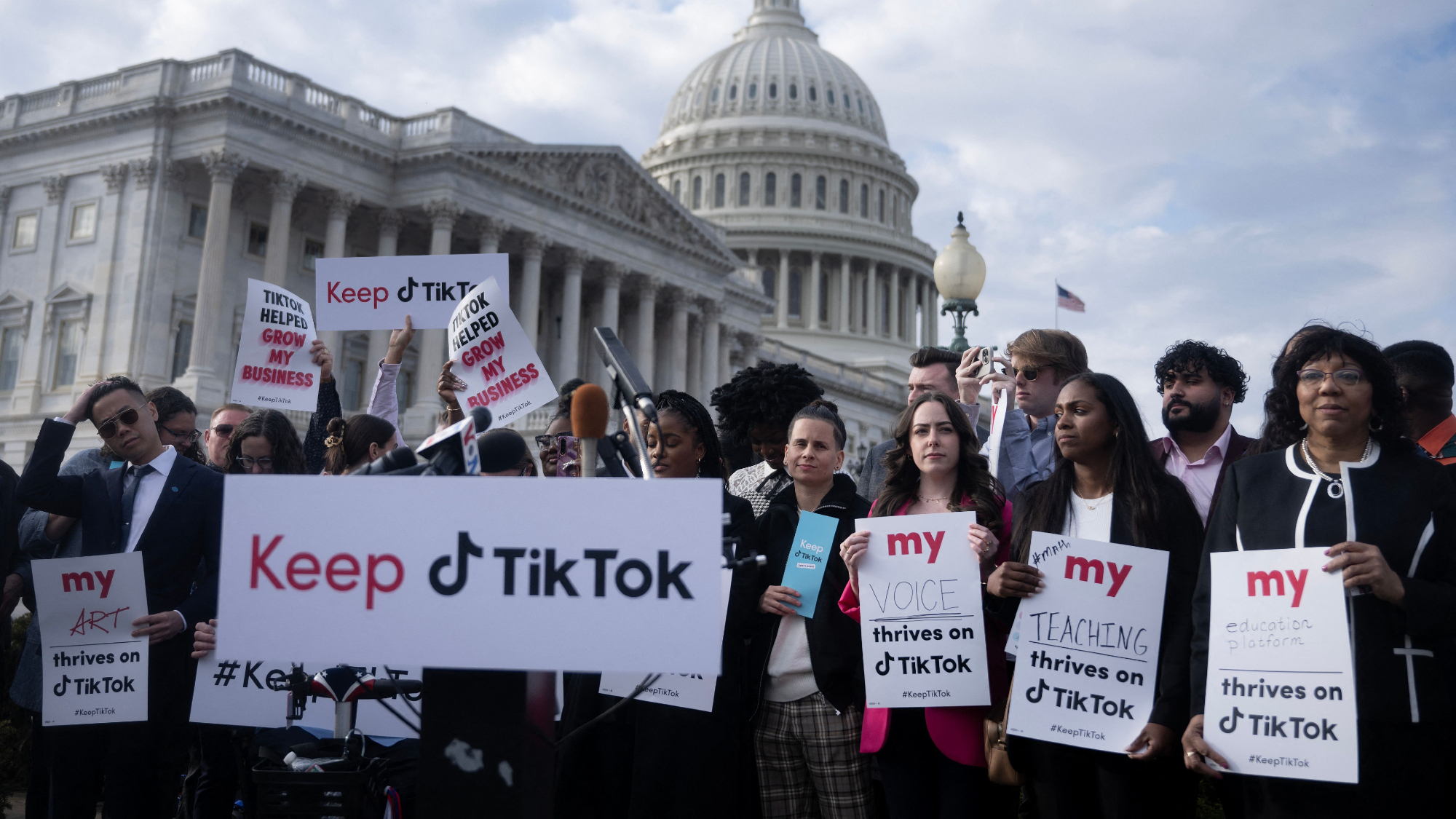TikTok: an agent of Chinese propaganda?
US Senate to deliberate on bill that would ban the app or force its Chinese parent company to divest

A free daily email with the biggest news stories of the day – and the best features from TheWeek.com
You are now subscribed
Your newsletter sign-up was successful
America's youngsters "might be about to have more free time on their hands", said The Washington Post. One of their favourite pastimes – scrolling through make-up tutorials, cute animal clips and viral challenges on TikTok – may soon be denied them.
Last week, the US House of Representatives voted to force the social media app's Chinese parent company, ByteDance, to sell TikTok to non-Chinese owners or face a ban in the US. Politicians argue that the app, which has more than 150 million users in the US, is a national security risk, because it collects vast quantities of personal data that the company could exploit, and because it could be used to spread Chinese propaganda. If the measure passes the senate – still a big if – President Biden has promised to sign it into law.
Talk about skewed priorities, said Julia Angwin in The New York Times. Polls show that almost three-quarters of Americans want tighter rules on how tech companies use personal data, but only 31% favour a TikTok ban. Forcing ByteDance to sell TikTok to some other tech firm, such as Google or Meta, isn't going to make US users' data any safer. This measure is an act of election-year posturing that offends both free speech principles and due process, said Elizabeth Nolan Brown in Reason. We should be very wary of "expanding presidential power to restrict Americans' access to tools for getting and disseminating information".
The Week
Escape your echo chamber. Get the facts behind the news, plus analysis from multiple perspectives.

Sign up for The Week's Free Newsletters
From our morning news briefing to a weekly Good News Newsletter, get the best of The Week delivered directly to your inbox.
From our morning news briefing to a weekly Good News Newsletter, get the best of The Week delivered directly to your inbox.
This is an attack on censorship, not free speech, said Jonathan Chait in New York Magazine. There's "plenty of direct evidence that TikTok's algorithm" follows the political dictates of the Chinese Communist Party. In 2019, leaked documents showed the app "instructs its moderators to censor videos that mention Tiananmen Square, Tibetan independence, or the banned religious group Falun Gong". TikTok claimed it changed those instructions, but suspicions remain. We can't prove it because TikTok conceals its algorithm. The app's sale to a neutral third party would fix the problem.
It's time for action, said Peggy Noonan in The Wall Street Journal: US security agencies have warned since 2020 that TikTok is "an espionage tool". With last week's vote, the House finally showed some backbone. "Its members said: You can't harm America without our at least trying to resist. They signalled to China that it can't bank forever on America's stupidity and carelessness."
A free daily email with the biggest news stories of the day – and the best features from TheWeek.com
-
 House votes to end Trump’s Canada tariffs
House votes to end Trump’s Canada tariffsSpeed Read Six Republicans joined with Democrats to repeal the president’s tariffs
-
 Bondi, Democrats clash over Epstein in hearing
Bondi, Democrats clash over Epstein in hearingSpeed Read Attorney General Pam Bondi ignored survivors of convicted sex offender Jeffrey Epstein and demanded that Democrats apologize to Trump
-
 Are Big Tech firms the new tobacco companies?
Are Big Tech firms the new tobacco companies?Today’s Big Question Trial will determine if Meta, YouTube designed addictive products
-
 Are Big Tech firms the new tobacco companies?
Are Big Tech firms the new tobacco companies?Today’s Big Question Trial will determine if Meta, YouTube designed addictive products
-
 Silicon Valley: Worker activism makes a comeback
Silicon Valley: Worker activism makes a comebackFeature The ICE shootings in Minneapolis horrified big tech workers
-
 AI: Dr. ChatGPT will see you now
AI: Dr. ChatGPT will see you nowFeature AI can take notes—and give advice
-
 Can Europe regain its digital sovereignty?
Can Europe regain its digital sovereignty?Today’s Big Question EU is trying to reduce reliance on US Big Tech and cloud computing in face of hostile Donald Trump, but lack of comparable alternatives remains a worry
-
 Claude Code: Anthropic’s wildly popular AI coding app
Claude Code: Anthropic’s wildly popular AI coding appThe Explainer Engineers and noncoders alike are helping the app go viral
-
 TikTok finalizes deal creating US version
TikTok finalizes deal creating US versionSpeed Read The deal comes after tense back-and-forth negotiations
-
 Is social media over?
Is social media over?Today’s Big Question We may look back on 2025 as the moment social media jumped the shark
-
 AI griefbots create a computerized afterlife
AI griefbots create a computerized afterlifeUnder the Radar Some say the machines help people mourn; others are skeptical